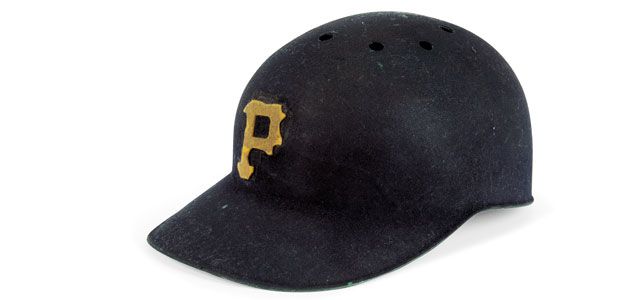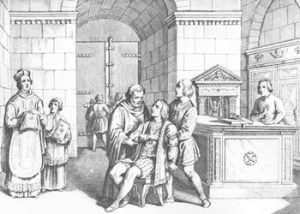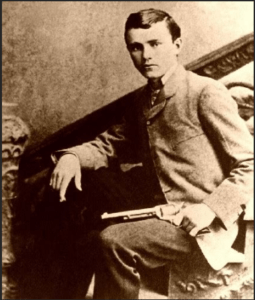Roberto Clemente was born and raised in the small town of Carolina, Puerto Rico in the early 1930’s. He was the youngest of seven children.1 From a young age he excelled at baseball and at the track event Javelin. At age eighteen, he tried out for the Brooklyn Dodgers. Roberto made the team with ease in 1952, but this is where his trials began. The Dodgers had five African-American players on the team already, including the famous Jackie Robinson. The owners saw no need for another “colored” player on the team.2

After his contract with the Dodgers’ minor league team in Montreal expired, the young Pittsburgh Pirates organization picked up Clemente in order to rebuild their team. But the Pirates didn’t give him a lot of playing time either, so he decided to return to Puerto Rico.3 But in 1956, after dominating back in his home town, Roberto finally caught his break with the Pirates. He returned to the United States, and he began to rise in fame rapidly, gaining success in the League. In his first season he finished with a batting average of .255. This success didn’t smash the curveball that was thrown his way because of his race. On several occasions, his teammates called him a “nigger.” It was also common for Clemente to stay in separate hotels from the white players on the team, due to segregation laws. Young Clemente was not even treated as an equal in the sport that he had been working so hard for years to adapt to.4 Whether it was the law, or people’s racial prejudices, Clemente continued to remain the outsider.
The Pirates eventually won the World Series in 1960, and Roberto Clemente finished that season with the stellar batting average of .310. As Clemente began to rise in fame, and people began to realize his potential for greatness, he began to receive death threats in the mail. One of the letters read “Did you ever get shot before?”5 In fear for his family’s safety, Clemente moved them home to Puerto Rico in order to protect them from such bigoted Americans of the 1960’s. After moving his family back to Puerto Rico, Clemente told the media, “I don’t want to be put down because I’m Puerto Rican. I don’t stand for disliking someone because of their color. If this is the case, I don’t want to be living. I am a double nigger….. for my skin and my heritage.”6
After Clemente moved his family back to Puerto Rico, and bounced back from the serial experience of death threats, and he became the League’s MVP in 1966.7 Clemente refused to let others keep him down because of the color of his skin. Clemente was not only an inspiration to people on the field, but was so off the field as well. In his spare time he would visit Puerto Rico in order to spend time with his family. But he also gave back to the struggling community he grew up in by helping out in the local clinic in Carolina. He also opened youth baseball programs for kids in Puerto Rico.8 Roberto helped raise over $150,000 for his home town. Clemente’s love for others, and actions in order to help his people and the community, was recognized by people all over the United States. He was becoming one of the most well-known athletes not only for his incredible playing abilities, but for his devotion to his personal humanitarian aspirations.
Then suddenly, on New Years Eve in 1972, while flying to Nicaragua to drop supplies off after a tragic earthquake, Roberto Clemente’s plane crashed. There were no survivors and Roberto Clemente’s body was never found. The plane was allegedly 1,900 kilograms over the weight it could carry.9

Roberto Clemente finished his career with over 3,000 hits, 4 World Series titles, 12 Golden Gloves, a two-time League MVP, and was inducted into the Hall of Fame in 1973.10 Roberto Clemente is remembered in Major League Baseball for so much more than these incredible stats. To this day, the MLB gives the Humanitarian Award to baseball players who best exemplify service to their team, community, and families.11 Clemente will forever be recognized for his love for others. And he fought for a sport he loved. There is much diversity in the MLB today, whether it is Yu Darvish from Japan, Didi Gregorius from the Netherlands, Arolodis Chapman from Cuba, or Carlos Correa from Puerto Rico. Clemente is a major reason for this diversity. He received death threats and experienced discrimination because of his color. But, most importantly, after all these trials, Clemente still managed to give back to his community and love others, which is why he’s an inspiration to Latinos and to people everywhere.
- Alan West, Roberto Clemente: Baseball Legend (Brookfield, Conn: Lerner Publishing Group, 1993), 6. ↵
- Salem Press Biographical Encyclopedia, January 2017, s.v. “Roberto Clemente,” by Lynn C. Kronzek. ↵
- Alan West, Roberto Clemente: Baseball Legend (Brookfield, Conn: Lerner Publishing Group, 1993), 10-12. ↵
- Alan West, Roberto Clemente: Baseball Legend (Brookfield, Conn: Lerner Publishing Group, 1993), 10-12. ↵
- Roberto Clemente. n.p.: (Washington, D.C.): Federal Bureau of Investigation, 2003. ↵
- Alan West, Roberto Clemente: Baseball Legend, (Brookfield, Conn: Lerner Publishing Group, 1993), 13. ↵
- Salem Press Biographical Encyclopedia, January 2017, s.v. “Roberto Clemente,” by Lynn C. Kronzek. ↵
- Alan West, Roberto Clemente: Baseball Legend (Brookfield, Conn: Lerner Publishing Group, 1993) 19-25. ↵
- Madeleine White, “Baseball’s Roberto Clemente dies in a plane crash,” Globe & Mail , 2015, A2. ↵
- Salem Press Biographical Encyclopedia, January 2017, s.v. “Roberto Clemente,” by Lynn C. Kronzek. ↵
- Wes Lukowsky, “Clemente: The True Legacy of an Undying Hero,” Booklist 110, no. 1 (2013): 30. ↵



53 comments
Crystalrose Quintero
This article was such a strong subject and good read. Cleemnte’s response toward The vulgar words directed to Clemente regarding his race was so powerful that I really respected what the article had to offer about Clemente. It was such a sad outcome to read that Clemente died because a plane crash. This article was short concise and to the point; but it also had a lot of information to offer.
Michelle Falcon
I have read this article before and I could honestly say it is one of my favorite articles. The last time I left a comment I said “I honestly believe his son and family would be proud”. I still stand by what I said and truly believe they would be. This article did a great job of showing us readers all aspects of Roberto’s life, and do believe its worthy of an award.
Alexandria Martinez
This was a good article, I don’t know much about baseball or the people that play. So reading this article gave me a lot of good information that I wouldn’t have known otherwise. It is a shame that people would ever not be able to follow their dreams just because of their skin color, but it is also great that many people can overcome those barriers and help the future minorities in following their dreams without prejudice.
Gabriela Serrato
Incredible article! I know almost nothing about sports, but I am so glad I got to read this article. It is amazing how much Roberto accomplished along with all of the obstacles he faced due to his skin color and background. His quote shocked me because of its value in truth. While those who are hispanic, they are discriminated against because of their skin but also because of their heritage and I see this still everyday. I am glad this country has made progress but it is no where near enough. I am so proud of all this man did in the name of baseball and it is a shame that he lost his life in such a devastating way.
Michelle Falcon
Roberto Clemente went through many trials, as well as tribulations, for where he came from and the color of his skin. Roberto is not only known for his amazing baseball skills but also for his amazing heart. Above all the thing he loved more than baseball was his family. I was fortunate enough to have meet his son, Roberto Clemente Jr. , through my high school and was given the opportunity to talk to him about his fathers legacy. I truly think this article did a phenomenal job of telling his story and I honestly believe his son and family would be proud.
Karla Chavana
It is always such a great honor to read, and to learn about a Hispanic or Latino Icons. As a Hispanic myself it is delightful to learn that Roberto Clemente not only astonished the world with his physical ability during sports but with his inspiration to minorities. Personally, I have no big interest in baseball, but this definitely made me appreciate it a little more. A Wonderfully written article.
Alejandra Chavez
It is always such a delight seeing such a prominent figure being celebrated for their influence not only (in this case) in Major League Baseball, but in the hearts and minds of those who share the same roots. Especially those younger than them. Robert Clemente made a large impact in multiple aspects of his life and career. He contributed to breaking barriers so that baseball players of all races and backgrounds can do what they love, all the while teaching young Hispanic/Latino children that they too have the capability to not let society’s racial views stop them. This was a great article.
Valeria Hernandez
Thomas Fraire wrote an informative narrative about the story of the first Latino baseball legend, Roberto Clemente. He provides readers with good background information about Clemente’s life. He develops a well-structured article and story arc building up to the climax of the article. He emphasizes that despite Clemente’s racial disadvantage he is able to excel. A clear theme throughout the article.
Brianda Gomez
Growing up in a baseball family, I really enjoyed reading learning about amazing Latino athletes. Although, Clemente helped the Dodgers win the World Series in 1960 he and his family were facing many dangers. Due to the lack of security he and his family moved back home to Puerto Rico. He was tired of people decimating him because of where he was from and the color of his skin. He was an amazing athlete. A resume containing four Whorls Series and 12 golden gloves. Great Article!
Ernie Sano
It is enjoyable seeing an example of Latino heroism that isn’t the usual subjects. Sports are always a great way to show the themes of triumph and perseverance. In this case, Roberto was able to shed even more light onto a culture that enjoys celebrating heritage so much. Continuing to highlight such figures is important to maintaining a relevance of Latin American history that was otherwise untouched by classrooms, history books, etc.